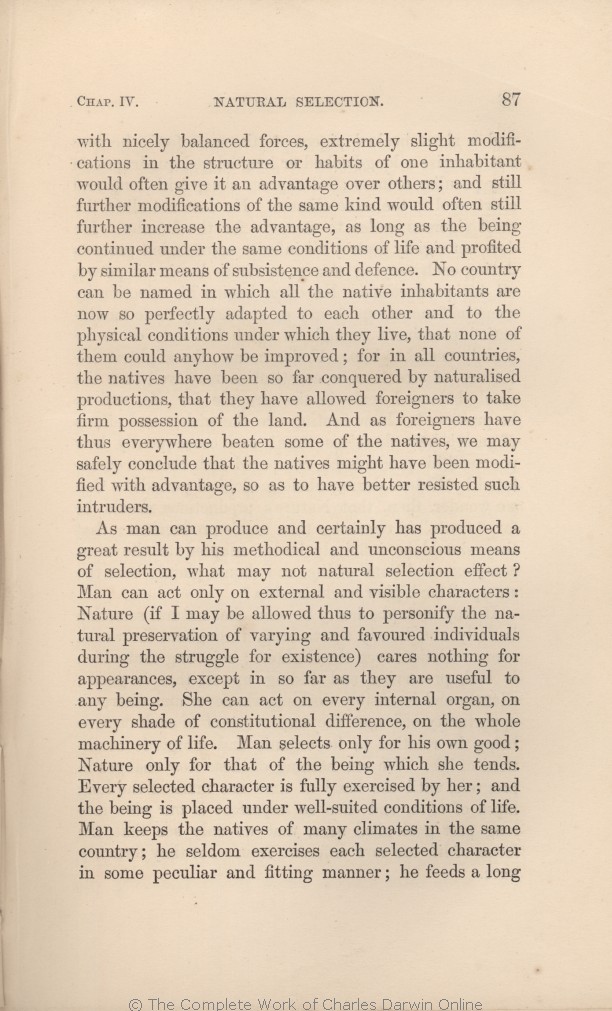with nicely balanced forces, extremely slight modifications in the structure or habits of one
inhabitant | inhabitant 1859 1860 1861 1866 | | species 1869 1872 |
| advantage, 1861 1866 1869 1872 | | advantage. 1859 1860 |
| being 1861 1866 | | species 1869 1872 |
| anyhow 1859 1860 1861 1866 | anyhow 1869 1872 |
| improved; 1859 1860 1861 1866 |
| still better adapted or improved; 1869 1872 |
| foreigners 1859 1860 1861 1866 1869 | | some foreigners 1872 |
| everywhere 1859 1860 1861 1866 |
| in every country 1869 1872 |
| such 1859 1860 1861 1866 | | the 1869 1872 |
|
|
As man can
produce | produce 1859 1860 1861 1866 1869 | | produce, 1872 |
| produced 1859 1860 1861 1866 1869 | | produced, 1872 |
| natural 1861 1866 1869 1872 | | nature 1859 | | Nature 1860 |
| selection effect? 1861 1866 1869 1872 | | effect? 1859 1860 |
| Nature (if I 1861 1866 |
| nature cares nothing for appearances, except in so far as they 1859 |
| Nature cares nothing for appearances, except in so far as they 1860 |
| Nature, if I 1869 1872 |
| allowed thus to personify the natural preservation of varying and favoured individuals during the struggle for existence) cares nothing for appearances, except in so far as they are 1861 1866 |
| allowed to personify the natural preservation or survival of the fittest, cares nothing for appearances, except in so far as they are 1869 1872 |
| OMIT 1859 1860 |
| her; 1859 1860 1861 1866 | | her, 1869 1872 |
| and the being is placed under well-suited conditions of life. 1859 1860 1861 1866 |
| as is implied by the fact of their selection. 1869 1872 |
|









